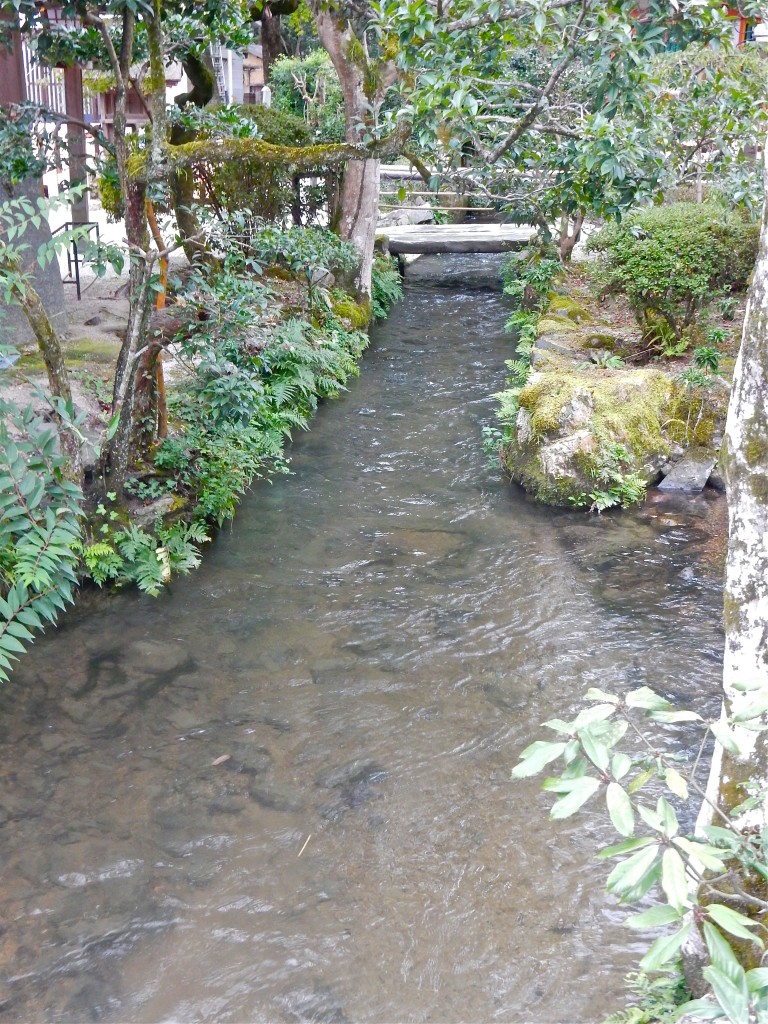
Gratitude for water, streams, and underground springs are an essential part of Shinto – and especially of Kamigamo Jinja. ‘Revering, cherishing and celebrating water,’ runs a shrine leaflet.
Green Shinto has posted recently on the financial woes of certain shrines in Kyoto. The terrible state of Shimogoryo Jinja was noted. The decision of Shimogamo Jinja to build an apartment block next to the sacred woods of Tadasu no mori. Plus the unfortunate erection of a ‘mansion’ within the outer torii of Nashinoki Jinja.
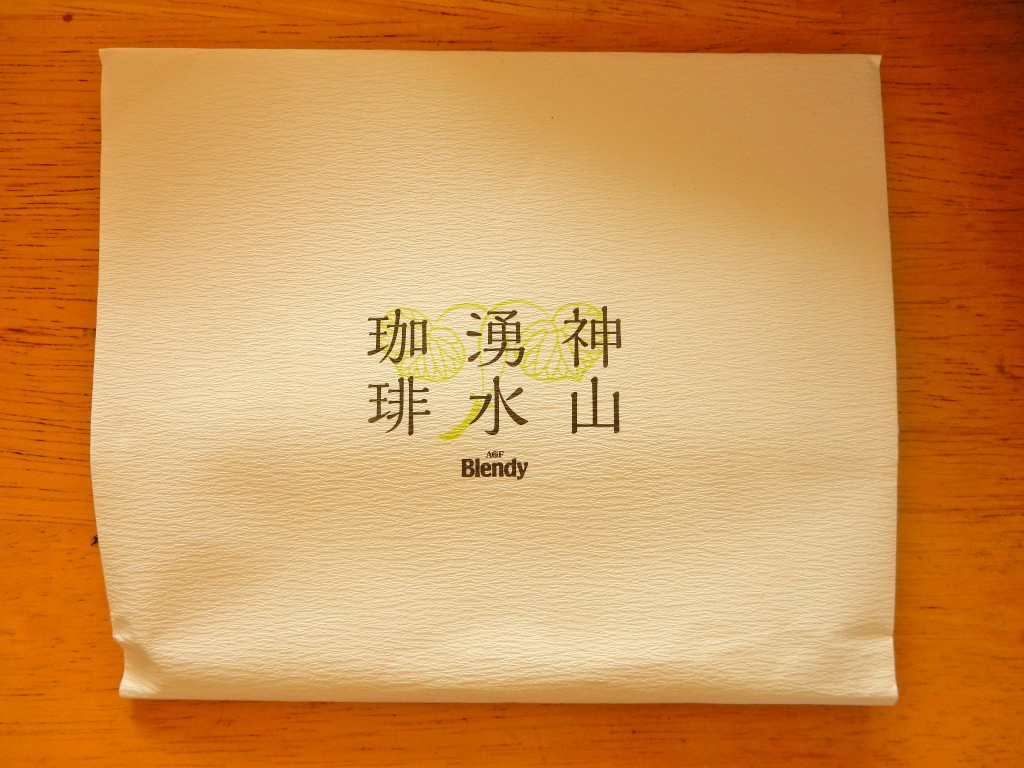
A packet of Koyama-Yusui Kohi (Coffee), specially prepared for the divine spring water
An interesting way of raising money was recently in evidence at the Aoi Festival, jointly held by Shimogamo and Kamigamo Shrines. As the procession wound up at Kamigamo, those amongst us in the crowd were intrigued to be handed packets of ‘holy coffee’. The idea was part of a scheme by the well-known Ajinomoto General Foods company, who are co-sponsoring various events related to the shikinen sengu renewal of the shrine.
Together with the coffee, a leaflet was handed out explaining its nature and purpose. Perhaps as an effect of prime minister Abe’s efforts to make a ‘beautiful Japan’, there’s a chauvinistic ring to what one might have imagined would be a universal taste:
“We at Ajinomoto General Foods have a deep sense of admiration for Kamigamo Jinja for preserving the source of renowned spring water Koyama-Yusui for such a long time in history and wanted to make its efforts known to a wide range of people. On this occasion, we made a premium quality coffee called Koyama-Yasui Coffeee which brings the most out of the pure spring water of Koyama-Yasui and satisfies the hearts of Japanese. Blended with the renowned natural water, the coffee is sure to be a great companion for a time spent on thinking about beautiful nature of Japan, its waters and forests.”
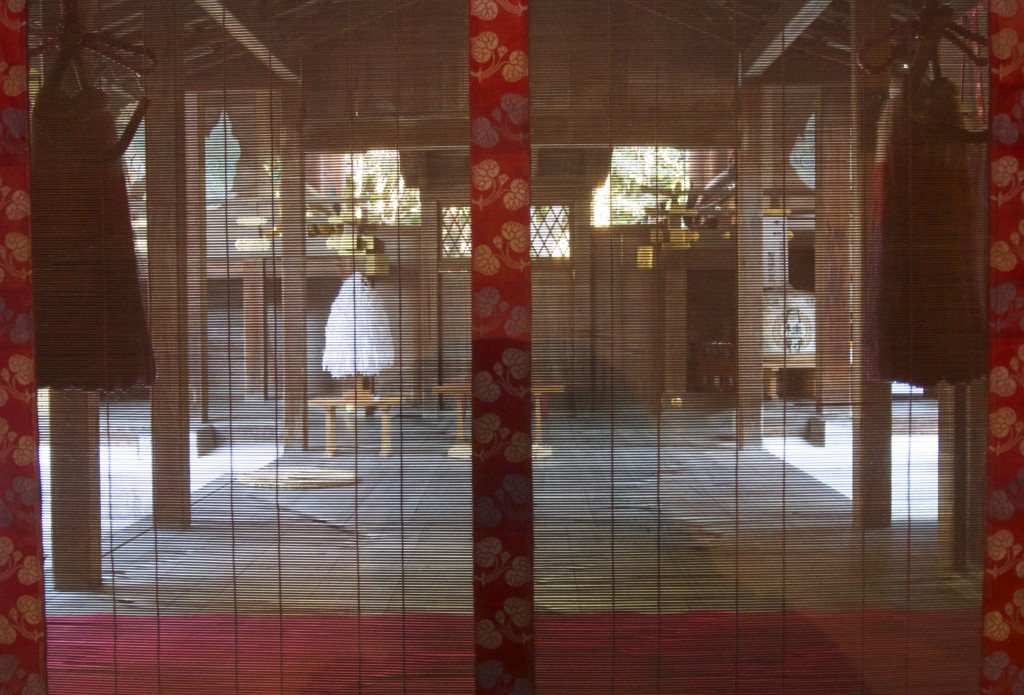
In sponsoring the spiritual, Japanese companies are sponsoring Japanese heritage
As well as handing out packets, the company put up a booth at the festival constructed out of Yoshino cedar by carpenters whose families had been involved with the shrine for centuries. Clearly here was an ideal form of sponsorship that worked to the benefit of both parties – on one side material gain and on the other a spiritual glow.
Perhaps sponsorship will become an attractive alternative to selling off land or using shrine woods for car parks. It’s a traditional part of shrine practice after all, evident in the company names written on sponsored torii or bottles of saké. It’s evident too in sponsored festival floats. It’s not inconceivable that in the future whole festivals and shrines will be sponsored as soccer teams in Japan once were, with names like Toyota Hachiman Jingu or Kawasaki Jidai Matsuri. Now there’s a thought…
Oh – and by the way, the coffee tasted divine!
(Next chances to sample the coffee will be at Kamigamo Jinja on July 25-26 and Oct. 17.)
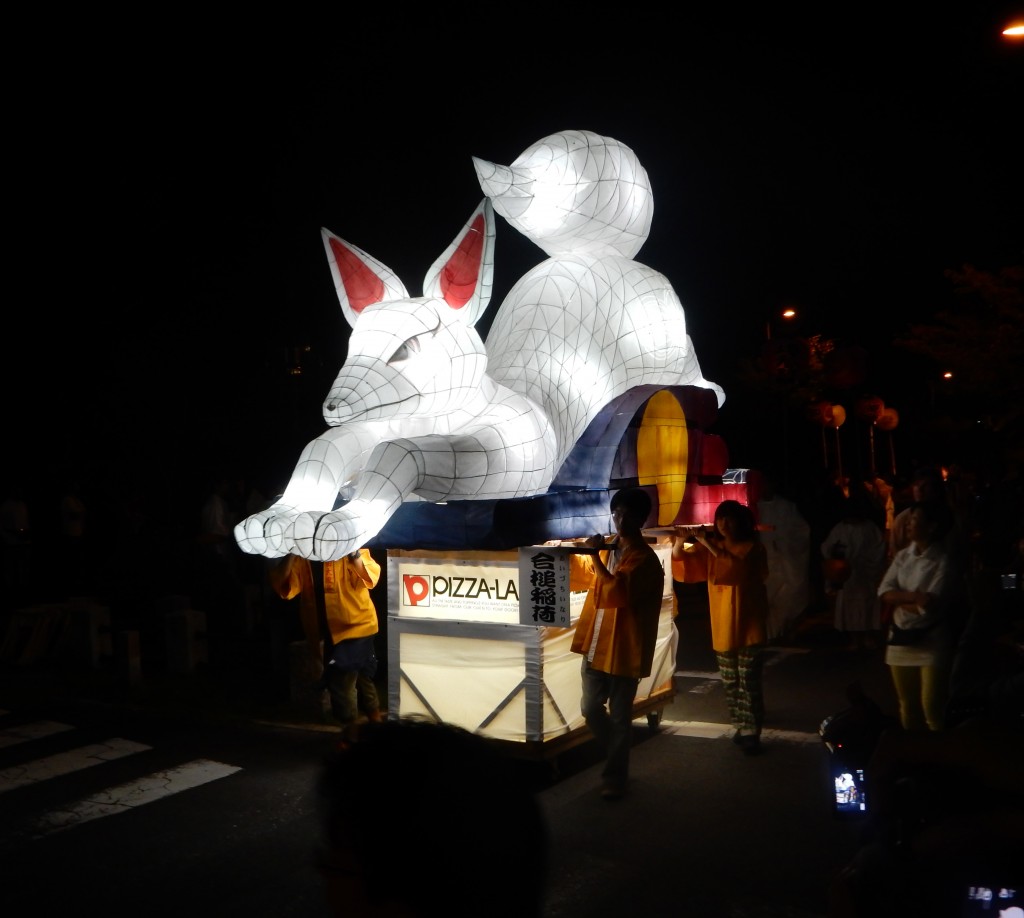
Awata Jinja’s festival floats bear prominent sponsors names
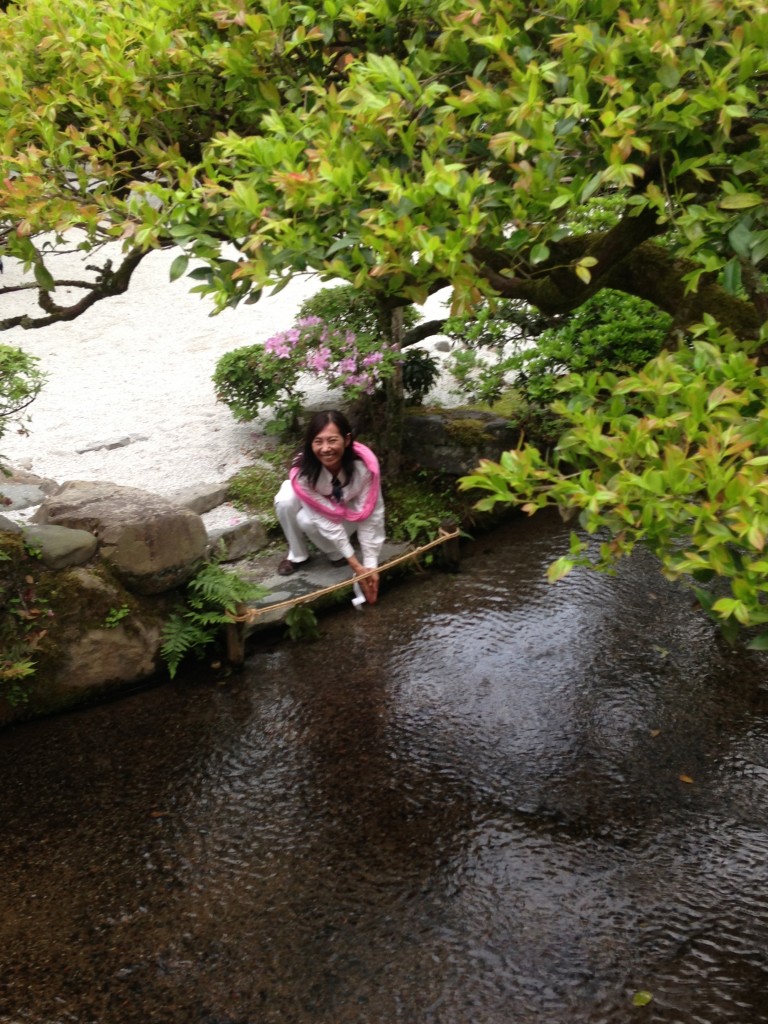
The shrine water at Kamigamo Jinja is not only good for coffee making but for purification too.

Leave a Reply